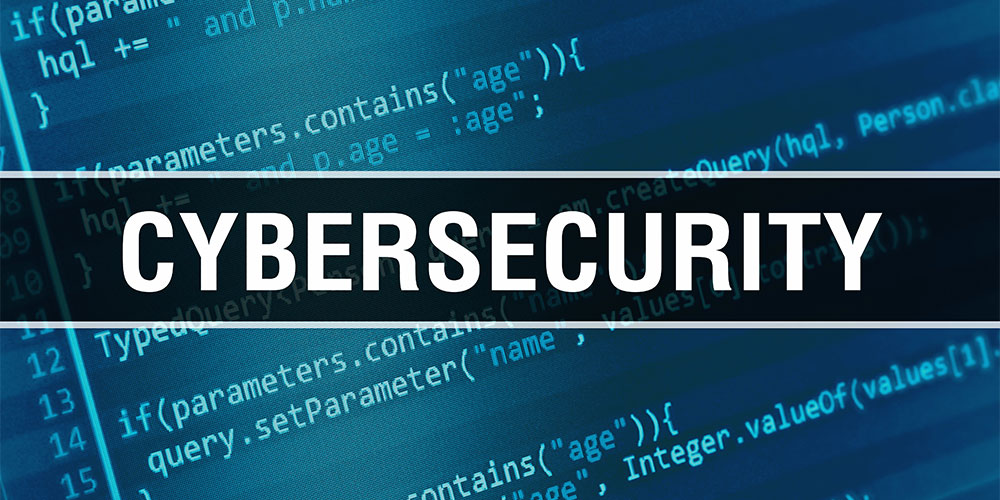If you wish to learn cybersecurity but don’t have the means or the ability to do it traditionally, meaning attending college classes, you might think you’re in a bit of a bind. However, that does not have to be the case. In this day and age, there are many ways to learn pretty much anything and get quite good at it simply by learning from home, on your own. According to the thesisgeek.com, cybersecurity is no exception to this rule. In this article, we’re going to go over some of the fundamentals of learning cybersecurity on your own. So, without further ado, let’s get started.
Can You Learn Cybersecurity On Your Own?
Source:

In a word – yes. However, what you need to understand is that you will have to overcome some difficulties and have a clear path in mind if you want to succeed. You’ll need to identify exactly what you want to learn, you’ll have to be thorough, plan everything out, find the learning materials and resources, have some hands-on training and so on. You’ll also need a good work ethic, but other than that, there shouldn’t be any major issues along the way.
Are There Any Drawbacks To Learning On Your Own?

Before you start, you have to understand that by doing this all by yourself, you’ll have to overcome some obstacles. Here are some of them.
Limited Access To The Equipment

Cybersecurity is a pretty hands-on field and unless you are willing to spend tens of thousands of dollars on equipment as universities do, you’ll struggle with this. It is almost certain that this will be one of the major disadvantages of learning on your own, however, this does not mean you won’t be able to do it. You’ll just have to find a way to get access to some equipment eventually.
No Mentorship
Another problem that you might face is not having anyone to answer your questions, help with the problems you might face or offer guidance of any kind. You’re on your own. You’re both student and the teacher. Which again, puts you at a disadvantage compared to those who study at universities or colleges.
No Curriculum
Universities have spent years and years making their curriculums. They’ve gone through trial and error phases multiple times to create a learning plan that is fitting to most students. You, on the other hand, will have to this by yourself. Now that you’re aware of the drawbacks, let’s move on.
How To Learn On Your Own
In this portion of the article, we’re going to walk you through the learning process, step by step, so you can ‘easily’ master the world of cybersecurity. First of all, you’ll start with…
Creating A Curriculum
You have to understand the field of cybersecurity is very broad, so, in the beginning, you might be feeling overwhelmed by the sheer amount of information you have to learn. On top of all that, this field is constantly changing and evolving, which also might be overwhelming and discouraging, but don’t let that defeat you. Instead, devise a plan.
Decide what you want to learn and find out where to start from. That is way easier said than done, but it’s achievable, don’t worry. Now, if you need any guidelines on where to start from, you could visit here, but in general, you’ll have to decide right away whether you want to focus on programming, testing, network security, or some other area of cybersecurity. Once you decide on a path, you can start by working on your curriculum and taking it one step at a time.
Finding Learning Materials

Once you’ve decided what it is that you want to learn, you have to find the resources from which you can learn. Luckily, there are many free or very affordable resources online that you can use to start things off. There are many courses and e-book to be found online, so this step should not be a particular problem. Do a little bit of research to find out which sources or courses are the most reliable and trustworthy and go get them.
One thing to keep in mind is since the field is constantly evolving – make sure you don’t use any old literature as the information there might not be correct, or applicable today. Also, YouTube may come in handy, but keep in mind that there is quality control on the platform so you might be bombarding yourself with false information.
Don’t Plan Ahead/Focus On One Thing At A Time

This might sound like a bit of bad advice, but the thing is, if you start planning too far ahead, you might end up skipping some important information that you’ll need later on once you progress with studying. So, don’t let the information overwhelm you, take it one step at a time. Start with basics and work your way up. The best way to know you’ve mastered something is when you can explain it to someone else effortlessly. So, don’t skip anything and focus on one thing at a time as that’s the best way to progress onto something more advanced.
Learn Hands-On

As you progress with your studies, you’ll have to get your hands dirty. Well, not literally, but you’ll need some to have some practical experience. As time goes by, you’ll need to acquire some equipment and software necessary for further progress. Also, if you don’t have the means to buy your own equipment, there are lab training and courses you can attend for a lot less money. This step is the one you can’t skip, as it’s arguably the most important one.
Additional Tips And Tricks
Now, let’s talk about additional stuff you can do to make your journey easier.
Read Daily
If possible, you’ll want to start your day with at least an hour of reading on whatever topic you’re learning at the moment. If you can instil that habit, we can guarantee that you’ll be able to master any field within 3 to 5 years. Now, that may sound like a lot, but, that’s how long you go to college and we never said you’ll learn cybersecurity in three months. You won’t.
Don’t Waste Your Time

Taking breaks from learning is essential, but, if you spend 5 hours each day scrolling through Instagram or binge-watching Netflix shows – you’re not going to get anywhere. Cutting down on activities like those two will certainly make you more productive.
Listen To Audiobooks
Another great way to learn is to listen to audiobooks. If you have to travel to work or if you’re doing something that allows you to listen to music or podcasts while you’re doing it – you have time to learn. Instead of listening to music or podcasts, listen to audiobooks on cybersecurity and learn, while not learning. It’s a neat little trick that will help you progress faster.
Finally, we just want to say that we’re glad you’re trying to learn and better yourself. If you embark on this journey, know that it won’t be an easy one, however, when you finish, you’ll feel more than great. Hopefully, we have managed to give you some good, helpful tips on how to learn cybersecurity and we wish you all the best.
